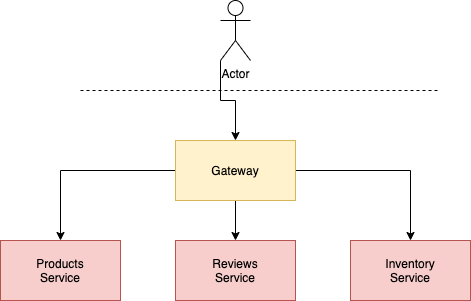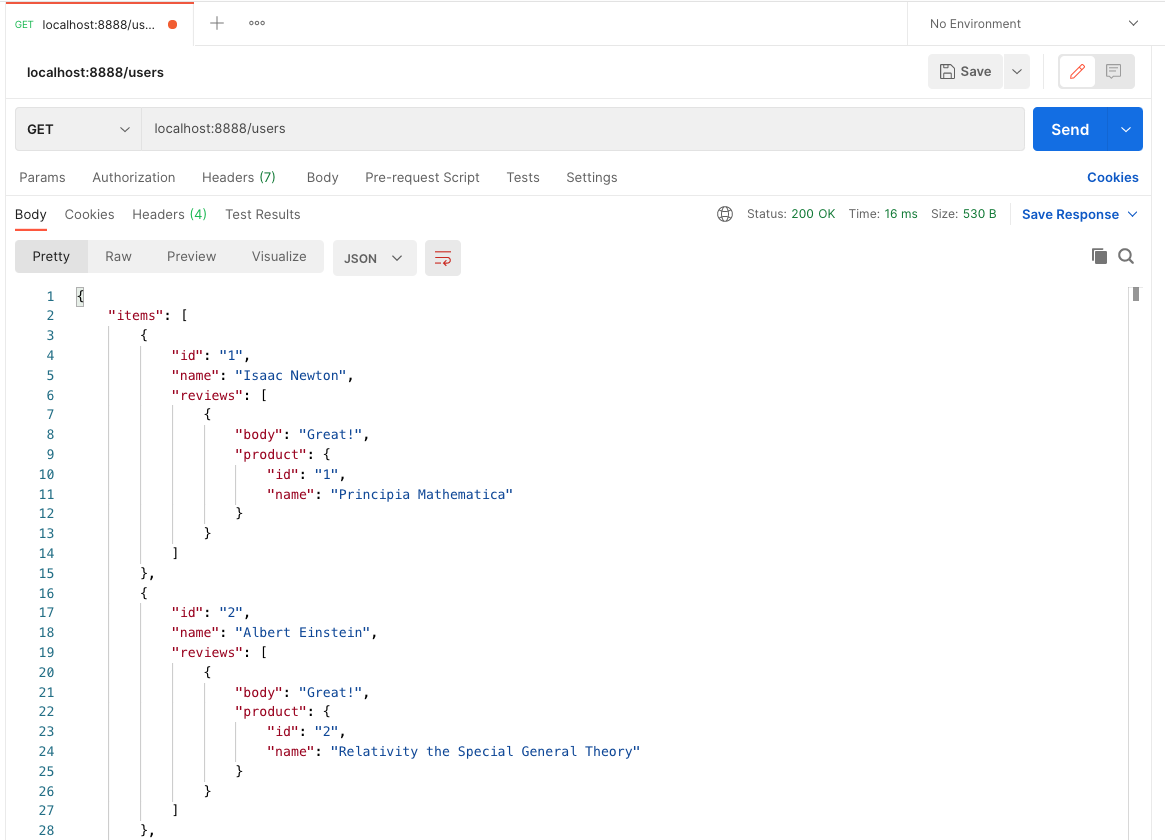Proposal: Federated OpenAPI Gateway
Proposal: Federated OpenAPI Gateway
Apollo has this great project to build federated GraphQL services. It allows you to build many GraphQL services that get consolidated together into one service. It also allows you to do something really neat–you can build you services together so that some act as a sort of “foreign key” join on data. It is a great tool to build de-coupled micro-services without needing to build composition services.
Now, why isn’t there anything like this for OpenAPI/REST?
Imagine having many services defining different endpoints all behind a gateway to combine and consolidate them into one cohesive service.

Where, as long as each service provides their own OpenAPI definitions, the gateway will present one cohesive API.
User Service:
{
"paths": {
"/users/{user_id}": {
"get": {
"responses": {
"200": {
"content": {
"application/json": {
"schema": { "$ref": "#/components/schemas/User" }
}
}
}
}
}
}
},
"components": {
"schemas": {
"User": {
"type": "object",
"properties": {
"name": { "type": "string" }
}
}
}
}
}
Review Service:
{
"paths": {
"/users/{user_id}": {
"get": {
"responses": {
"200": {
"content": {
"application/json": {
"schema": { "$ref": "#/components/schemas/User" }
}
}
}
}
}
}
},
"components": {
"schemas": {
"User": {
"type": "object",
"properties": {
"reviews": {
"type": "array",
"items": { "$ref": "#/components/schemas/Review" }
}
}
},
"Review": {
"type": "object",
"properties": {
"body": { "type": "string" },
"product": { "$ref": "#/components/schemas/Product" }
}
}
}
}
}
Product Service:
{
"paths": {
"/products/{product_id}": {
"get": {
"responses": {
"200": {
"content": {
"application/json": {
"schema": { "$ref": "#/components/schemas/Product" }
}
}
}
}
}
}
},
"components": {
"schemas": {
"Product": {
"type": "object",
"properties": {
"id": { "type": "string" },
"name": { "type": "string" }
}
}
}
}
}
Which would output one OpenAPI and service that provides:
{
"paths": {
"/users/{user_id}": {
"get": {
"responses": {
"200": {
"content": {
"application/json": {
"schema": { "$ref": "#/components/schemas/User" }
}
}
}
}
}
},
"/products/{product_id}": {
"get": {
"responses": {
"200": {
"content": {
"application/json": {
"schema": { "$ref": "#/components/schemas/Product" }
}
}
}
}
}
}
},
"components": {
"schemas": {
"User": {
"type": "object",
"properties": {
"name": { "type": "string" },
"reviews": {
"type": "array",
"items": { "$ref": "#/components/schemas/Review" }
}
}
},
"Review": {
"type": "object",
"properties": {
"body": { "type": "string" },
"product": { "$ref": "#/components/schemas/Product" }
}
},
"Product": {
"type": "object",
"properties": {
"id": { "type": "string" },
"name": { "type": "string" }
}
}
}
}
}
And a GET request to /users/1 would then respond with:
{
"name": "Foo bar",
"reviews": [{
"body": "Mario rocks",
"product": {
"id": "1",
"name": "Nintendo"
}
}, {
"body": "Sonic is better",
"product": {
"id": "2",
"name": "Sego"
}
}]
}
Behind the scenes the following requests would then be made:
- User service:
GET /users/1 - Reviews service:
GET /users/1 - Products service:
GET /products/1andGET /products/2
There are many different ways to build it; however, the above examples are a simple way it could work.
Harder problems
- One of the advantages of GraphQL is you only get back what you ask for.
An approach for OpenAPI would probably need to implement some sort of
?include=reviews,reviews.productimplementation in order to return the data you want. Otherwise, the fan-out could be quite bad. - GraphQL is built for running multiple operations at a time. This allows developers to leverage data loader patterns to alleviate fan-out problems. It’s possible similar multi-operation endpoints would need to be available to downstream services in order to solve this.
- Error handling. Federated GraphQL already has issues with this(no http status codes); however, I can see issues where one service responds correctly but another does not. What happens if a “foreign” key does not return a value?
Update
I’ve written a POC implementation of the above in Python and put it on GitHub.
